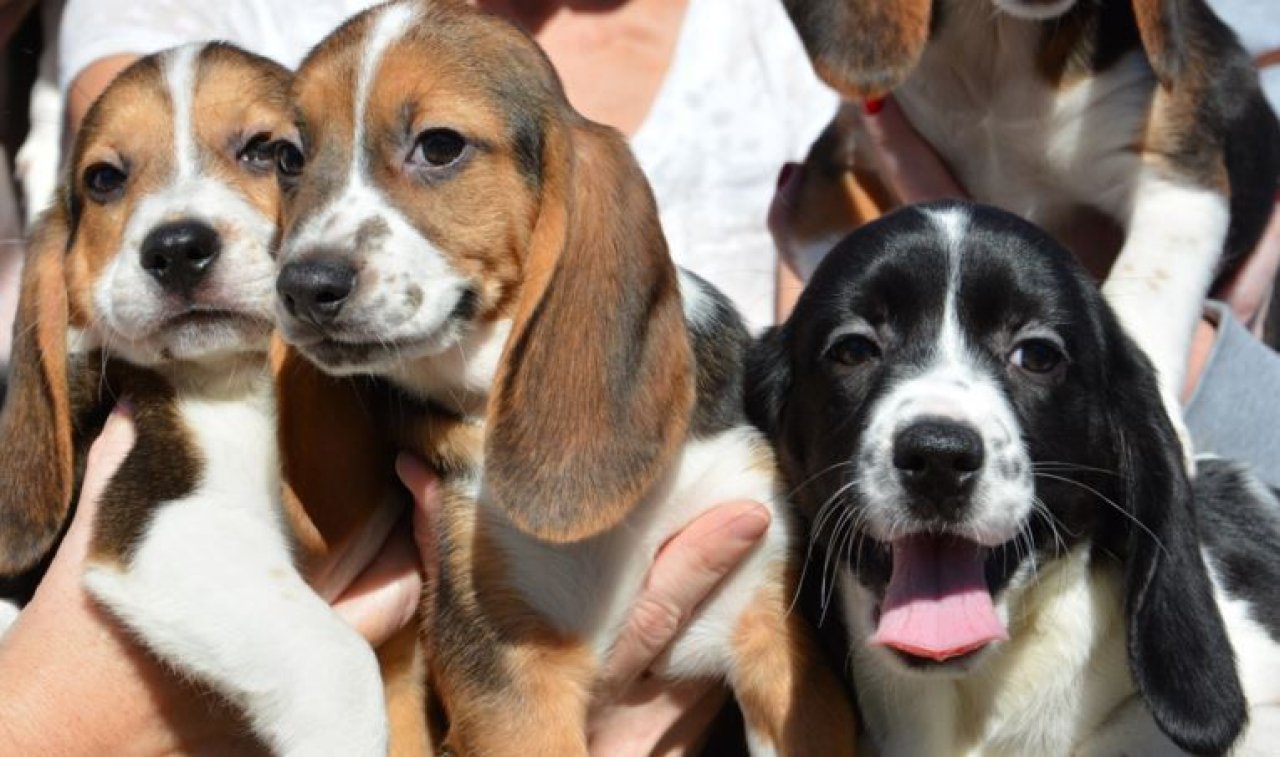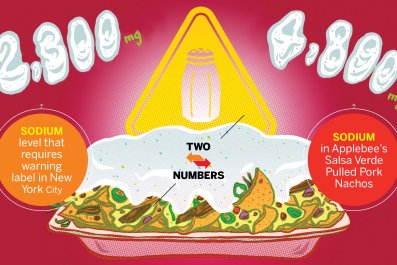For the first time ever, a litter of puppies has been born that was conceived via in vitro fertilization.
In just about every other domestic animal, offspring have been successfully brought to term using IVF, a process wherein eggs and sperm are collected and brought together to create an embryo outside of the body, then placed back inside a female's reproductive tract.
Scientists have been trying for decades to make this happen in dogs, but the reproductive system of canines is quite different from other mammals, explains Alex Travis, an associate professor of reproductive biology at Cornell University's College of Veterinary Medicine.
Now they've finally succeeded. As described in a paper published Wednesday in the journal PLOS One, Travis and his team, led by first author and Travis's former doctoral student Jennifer Nagashima, implanted 19 embryos into a hound dog. These embryos came from three different pairings, two from beagle parents and one of a cocker spaniel and a beagle. The end result: seven healthy puppies.
The scientists had to overcome two major challenges to make this happen, Travis says. First, dog sperm are quite finicky. If you just try to fertilize an egg with them, it won't work—they need to incubate and develop in the reproductive tract of females before becoming capable of fertilization. So Nagashima went back to the drawing board to attempt to recreate this environment in the lab, examining decades' worth of research on dog sperm. Her work suggested that the sperm needed magnesium to develop, and further experimentation proved her hunch true. Secondly, when dogs ovulate, or release eggs from their ovaries, these tend to be quite immature compared with those of other mammals, Travis says. The researchers found that if they removed the dog's eggs several days later than is typically done, the chances of fertilization went way up.
The scientists then put these two findings together. They incubated sperm for several hours in a solution with magnesium and other chemicals produced in a dog's fallopian tubes and then combined it with mature dog eggs. After a couple of days, they confirmed that fertilization had taken place, and they froze these embryos. Later they implanted them into a hound dog, chosen mostly because it is a larger dog with a sizable uterus, Travis says.

The findings come with a lot of potential applications, says Pierre Comizzoli, a research biologist at the Smithsonian Conservation Biology Institute, who wasn't directly involved in the study. For example, having a fertilized embryo in the lab allows researchers to genetically manipulate it. This could have tremendous applications since dogs share a number of genetic diseases with humans, such as various types of cancer and diabetes. Successful treatment of these conditions in dogs could help lead to better treatments in people, Travis says. The advance also has exciting potential in conservation biology, Comizzoli says. Many canine species—such as red wolves and African wild dogs—are endangered, and this technique could be used in the future to breed more of them, or even correct genetic defects. Then there are the obvious applications for use by veterinarians, to birth pups from dogs that can't naturally breed for various reasons, Travis says.
Ann Van Soom, a researcher at Ghent University in Belgium who wasn't involved in the paper says that it's "a major breakthrough," but much more work will be needed to improve the process before it's ready for "practical or clinical applications." Nagashima, now a post-doctoral researcher at the Smithsonian Institute, is currently working to improve the process so scientists can develop viable offspring from young or even recently deceased animals in the future. It would be useful to preserve the genes of these animals, but their eggs can't yet be salvaged for in vitro fertilization, Travis says.






















